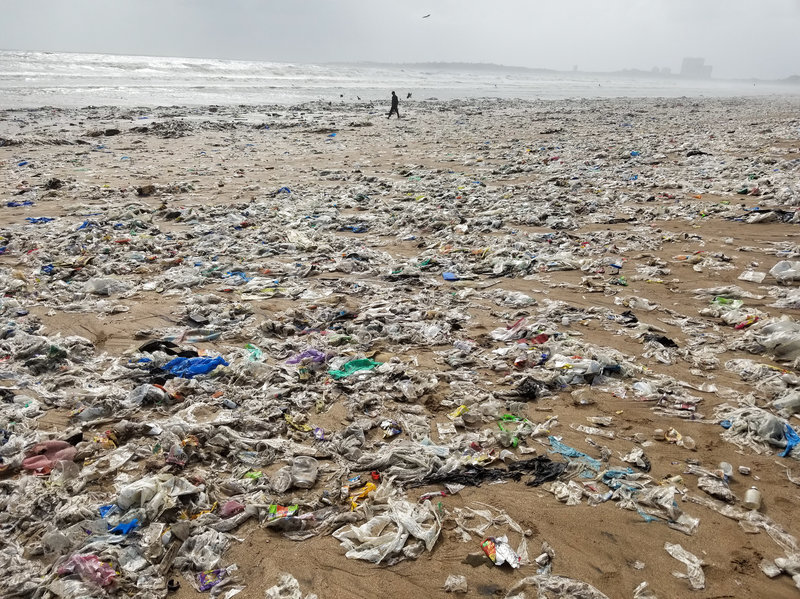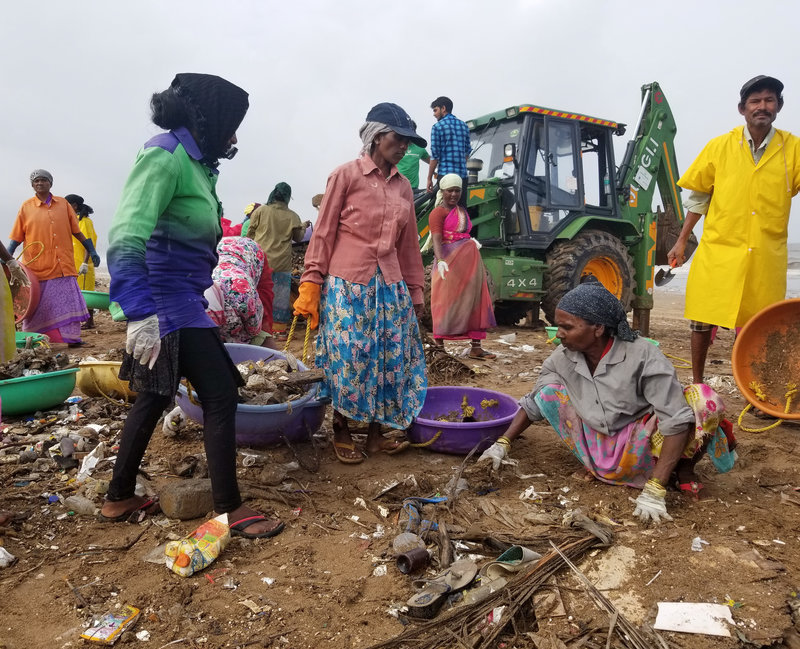
Mumbai’s Juhu beach is strewn with trash at low tide during monsoon season. Floodwaters flush garbage out of the city and into the Arabian Sea. As tides ebb, beaches are blanketed in trash, much of it plastic. (Lauren Frayer/NPR)
Heard on Morning Edition, Via NPR
From June to September, monsoon rains fall on Mumbai, India’s largest city, delivering relief from stifling heat and vital nourishment to surrounding farmland. But they also bring an unwelcome visitor: Tons of garbage wash up on the city’s shores.
When Mumbai floods, the water flushes waste out of city streets, storm drains and slums and sends it to the Arabian Sea. Then the tides ebb and blanket the beaches in that trash — most of it, plastic.
And now the government is taking action with a ban on plastics.
It’s easy to see the scope of the problem. Joggers, fishermen and families out for a weekend stroll on the waterfront have to clear a path through ankle-deep garbage.

Volunteers and some municipal workers carry buckets of trash to a bulldozer on Mumbai’s Versova Beach. Three years ago, a lawyer who lives near the beach, Afroz Shah, started a cleanup campaign on Facebook and Twitter. (Lauren Frayer/NPR)
Three years ago, a lawyer who lives near Mumbai’s Versova Beach decided he’d had enough.
“The culture of using and throwing away is dangerous. For example, plastic straws. You don’t need plastic straws in your life! They create havoc in a marine environment,” says lawyer Afroz Shah, who launched a cleanup campaign on Facebook and Twitter
I visited Versova Beach last week and saw about 50 volunteers picking up trash – at 7 a.m. on a weekday, in the rain. Among the items raked up and deposited into idling dump trucks: plastic soda bottles, empty chip bags, old sandals, toothpaste tubes, plastic bags — and many, many plastic straws.
